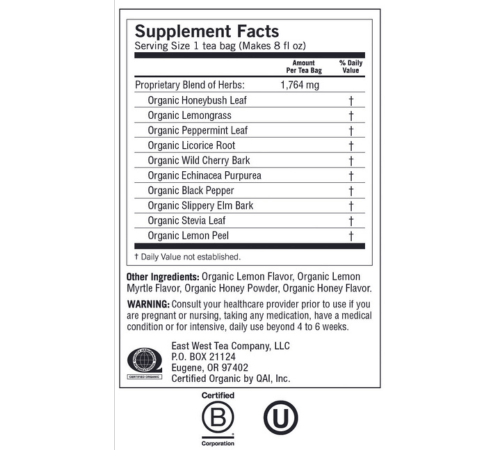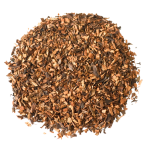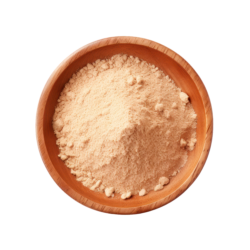
Honey Lemon
Throat Comfort® Tea
SOOTHES THE THROAT*
Yogi Honey Lemon Throat Comfort® tea is purposefully blended with Echinacea Purpurea and Wild Cherry Bark; an ingredient traditionally used by native North Americans for its soothing properties. Naturally-sweet Honeybush combines with refreshing Peppermint and notes of Organic Honey and Lemon flavors. Sip Yogi Honey Lemon Throat Comfort® tea for a tasty treat that helps to comfort and soothe your throat.*


Supplement Facts

Yogi Honey Lemon Throat Comfort® Tea Ingredients

Honeybush
Honeybush is indigenous to the cape area of South Africa, where it has been used for centuries to make a beverage and a medicinal tea. Similar to the famous rooibos, also native to South Africa, honeybush brews into a delicious tea with a pleasant, mildly sweet taste and aroma, somewhat like honey. Honeybush tea is caffeine free and supplies antioxidants.

Lemongrass

Peppermint Leaf
Peppermint is a perennial plant that produces light purple flowers and green leaves with serrated edges. Commonly used as a flavoring in products such as candy, chewing gum, toothpaste, and ice cream, peppermint also has been used traditionally to cool the body by promoting sweating, which can help support the respiratory system. Peppermint has also been widely used to support digestion and to soothe an occasional minor upset stomach.

Licorice Root

Wild Cherry Bark

Black Pepper
Not only is Black Pepper one of the most widely used culinary spices in the world, it also has a long history of use in traditional herbal medicine. A spicy herb that can help support digestion, it also supplies antioxidants, which can help to reduce free radicals. As a diuretic, black pepper can support water balance in the body.

Slippery Elm Bark

Stevia Leaf
Stevia is a genus of about 240 species of herbs and shrubs in the sunflower family native to subtropical and tropical South America and Central America. The leaf is used primarily as a sweetener in South America. Locals there use it as a substitute for sugar for those who can't use sugar. Various glycosides, including stevoside - which is about 100 to 200 times sweeter than sugar - provide the sweetness. It is widely used as a non-sugar sweetener in other areas of the world, particularly in Japan.

Lemon Peel
Lemon Peel is used in traditional herbal medicine to support digestion. Citrus peel is pungent, bitter and warm.

Organic Flavors












